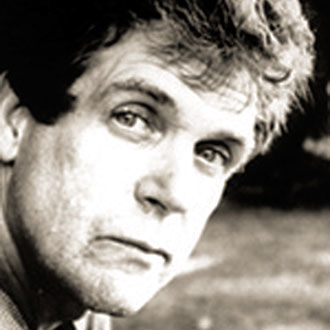Milieu
January: interesting to see the corpse light that, so oddly lovely,
there in peace. Had never seen (or is it felt once) that before.
January; one is forever an ending. Woods, clouds. I could have
said words about the corpse. One can see through.
January: to use maps of the world: in this country and in other
countires children and women (these always in particular)
are being shot at like memory is shot at in discussion of
ideas among those not on the line but probably on line, like
memory of those who have never been shot at.
January: point isn’t that they don’t shoot. Identities find walls
and ears and arms missing. One corpse is rolled over to see
what page of light to identify the corpse by now.
January: rites ending. My temple. Breath. A migrant moon.
January: not going to make faith of an echo. But one is
given a mirror. One is given a ghost. One will give up only
the forgiveness: the rain, the woods, the clouds, the breath
of a friend.
January: John and I were seeing something by sea’s surface that
maybe we were not meant to see. We mention his face after
two decades. We don’t want to talk about it or walk about it.
The Coast Guard house literally in harbor at Provincetown,
waiting out rough weather/winter before being “shipped”
to Race Point.
January: camera. Window. Small glee to see Grace in Chelsea
window. Windows where I could come from is the thought.
Windows I know in a heart’s eye, a heart’s ear.
Talking
I am going to tell you he is my brother but he isn’t. But there isn’t (is not) any way I am going to talk about what I need to talk about unless I tell you he is my brother. So I have to start there (here). Talking is painful, but it feels sometimes as if that is all there ever was, that it isn’t (is not) as painful at all.
If I dream of you. I want to go back to sleep.
I never had a friend in childhood whose brain had to be removed. But I knew of someone by the time I was thirteen or fourteen who had a rare disease of the brain.
My brother painted. I watched. He gave up painting for one year for photography (black and white). But when he ran out of subjects (he said he ran out of subjects) he went back to painting. By this time I was not watching nearly as much.
I don’t know if I have ever dreamed about talking. Just talking. Talking as the subject for a dream. Although talking could disguise itself as a subject for, say, being drawing. Space. Drawing space. Disguised for talking.
My brother is painful sometimes. Coalition.
I tell you he is talking.
Is not.
One time he washed the moon and put it in his pocket. One time he washed the moon and it didn’t dry right and it appeared to be all crushed.
Sometimes as if that is all there ever was.
Now you are angry at me and it is pointless to deny the anger. But you are not really angry at me. You are angry at your brother, or for the fact that I said something to you that would indicate, if only for a second or two, how very close to each other we are, how very close to each other we have always been. And this intimacy is simply something you can’t handle. Or I can’t handle this, but your anger is a disguise for me. This would make some sense. We are having one of those Let’s-play-unconscious-roles-today-and-trouble-one-another-by-denying-or-moving-through-emotional-life-sideways-Yes.
Three stones from the mountain in France. Three answers hidden on a page in a book.
Your brother’s hatred of thick paint. Your brother (not mine).
But I was close to him because he felt to me like he could be the brother I sought.
We misuse words much too often.
I can only speak for me.
We threw the moon out. The next night another moon turned up.
When my mother died the nurse told us not to feel we had to hurry to leave her body, that my mother would seem alive/asleep for awhile and that sometimes it was comforting to stay awhile. She would not seem dead right away. And she didn’t. Seem dead. And we stayed for what seemed like a minute or two minutes. We did unusual things: I took a photograph and a drawing off of the nursing home wall on her side of the room. We were concerned for her “roommate” who had no legs really and was not ambulatory of course and could not just leave. We thanked her for “being with” my mother, although neither had a choice.
Do I know what my mother thought of my brother or of the moon? Not much.
My mother was terribly uncomfortable with words. Maybe even depressed by them.
